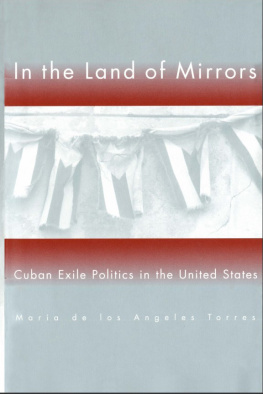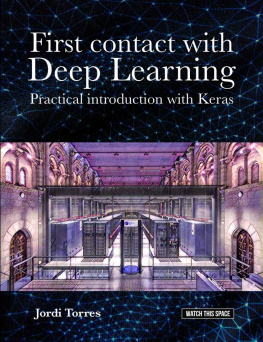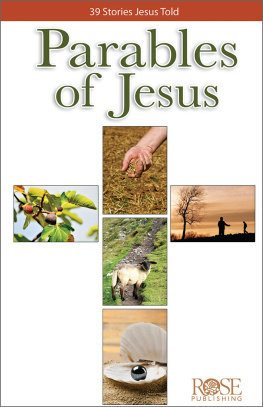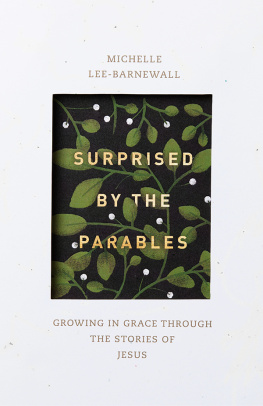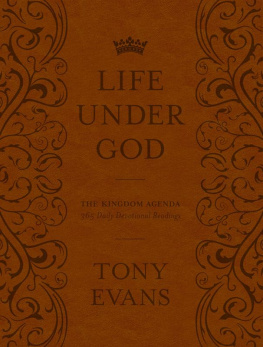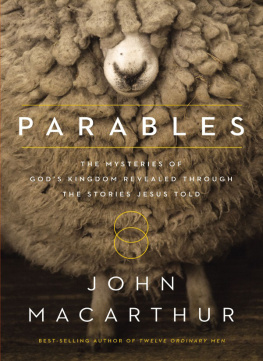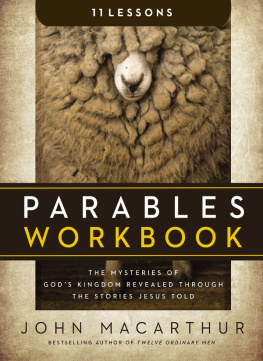Torres - Kingdom and Wisdoms Parables
Here you can read online Torres - Kingdom and Wisdoms Parables full text of the book (entire story) in english for free. Download pdf and epub, get meaning, cover and reviews about this ebook. year: 2022, publisher: ЛитРес, genre: Religion. Description of the work, (preface) as well as reviews are available. Best literature library LitArk.com created for fans of good reading and offers a wide selection of genres:
Romance novel
Science fiction
Adventure
Detective
Science
History
Home and family
Prose
Art
Politics
Computer
Non-fiction
Religion
Business
Children
Humor
Choose a favorite category and find really read worthwhile books. Enjoy immersion in the world of imagination, feel the emotions of the characters or learn something new for yourself, make an fascinating discovery.

- Book:Kingdom and Wisdoms Parables
- Author:
- Publisher:ЛитРес
- Genre:
- Year:2022
- Rating:3 / 5
- Favourites:Add to favourites
- Your mark:
- 60
- 1
- 2
- 3
- 4
- 5
Kingdom and Wisdoms Parables: summary, description and annotation
We offer to read an annotation, description, summary or preface (depends on what the author of the book "Kingdom and Wisdoms Parables" wrote himself). If you haven't found the necessary information about the book — write in the comments, we will try to find it.
Torres: author's other books
Who wrote Kingdom and Wisdoms Parables? Find out the surname, the name of the author of the book and a list of all author's works by series.
Kingdom and Wisdoms Parables — read online for free the complete book (whole text) full work
Below is the text of the book, divided by pages. System saving the place of the last page read, allows you to conveniently read the book "Kingdom and Wisdoms Parables" online for free, without having to search again every time where you left off. Put a bookmark, and you can go to the page where you finished reading at any time.
Font size:
Interval:
Bookmark:
Kingdom and Wisdoms Parables
Aldivan Teixeira Torres
Kingdom and Wisdoms Parables
____________________
By: Aldivan Teixeira Torres
2018-Aldivan Teixeira Torres
All the rights reserved
Aldivan Teixeira Torres
E-mail: aldivanvid@hotmail.com
____________________________________________
This book, including all its parts, is protected by copyright and dont can to be reproduced without Autors permission, resold or transferred.
______________________________________________
Short Biography: Aldivan Teixeira Torres, born in Arcoverde-PE-Brazil, develops the series of novels "the seer", poetry, books of the genre self-help, religious, the field of wisdom, among others. To date it has published titles in Portuguese, Spanish, English, French and Italian. From an early age, he has always been a lover of the art of writing and has consolidated a professional career since the second semester of 2013. He hopes to contribute to the Pernambuco and Brazilian culture, arousing the pleasure of reading in those who do not have the habit. Your mission is to win the heart of each of your readers. Besides literature, his main tastes are music, travel, friends, family and the very pleasure of living. "For literature, equality, fraternity, justice, dignity and honor of the human being always" is his motto.
Summary
The Kingdom and Wisdoms parables are a collection of parables that have as purpose the instruction for diverse situations that occur in our life. Let us look for in these parables the thread that unrolls the midst of our problems and we will live better.
I hope that they contribute in some way to the life of the readers and if at least one person is satisfied with this book, I will give a good use of the time used in their making. A hug.
The author
Joshua was a prosperous merchant in Recife. He was married and had two children named Abelardo and Roger. Abelard was his son with his legitimate wife and Roger was the fruit of an extramarital relationship. The two were raised together and treated equally by their parents. When they grew up, they learned the truth that they were half-brothers. Initially, this did not affect the relationship of the two with them accepting a good one. However, over time, the firstborn (Abelard) began to implicate his half-brother, therefore, he always wanted more attention from parents than did not happen.
With the opening of two more stores, Joshua decided to call a family meeting to declare his decision. The children attended and their father began the dialogue.
My children, we are gathered here to deliberate on an important question: The administration of the new stores that I have just inaugurated. I'm already very busy with the ones I have and so I'm going to pass them on to my two children. Each of you will have a store. I am not discriminating against anyone because they both have the same sales capacity. What do they tell me? Accepted?
The eldest son rose angrily and protested:
Is not fair. I have the right to stay with the two stores because I am your true son, the fruit of true love. While there, it's just an error.
The father, disgusted, broke out on top of him and slapped him.
"You are the one who has no right to humiliate you." He is my son as much as you are. What is mine do what I want. By this attitude, I will take away the administration from the store and deliver this to my other son because he did not even open his mouth to complain about my decision. Whoever deserves it will be given even more.
There was, in a distant kingdom, an extremely good and powerful king. He was served by numerous faithful servants who loved him. Each day, he chose some more to grow his wheat field because he was huge. Among the workers, there was one named Angel who was one of the most important servants. He had six talents of significant importance. However, he did not know how to handle these tools and did not want to hurt others. The king, all powerful, knew of his acts because of the damage he was causing. At every turn of his, the king paid a huge sum in compensation to his creditors. The time passed and Angel unknowingly continued sowing tares instead of wheat. The king loved him. Among the servants, there was no one above him. However, the king realized that if he did not take an energetic attitude he would ruin the plantation and with that he would be sentenced to prison no matter how much it hurt him. Then the king decided to send the black knight.
The black knight, also called the devastating plague, was the first evil known in his field. He is the father of lies and malice. He approached Angel and began to cry:
The weeds that you have unwittingly sowed I will gather you now. On the way back, I come to pick you up, too.
In this, a white knight appeared and complemented:
"This is just a warning. If you continue to carry out your crimes you will also be condemned as was this tare. The king sent me here to alert you. He knows you sowed tares thinking it was wheat. That is why he spared him this plague. Now, continue your work and be careful not to sow more tares.
At this moment, Angel had proof of the true love you had for him. From that day on, he would mend and cultivate the harvest more quickly.
The king represents the creator. The subjects represent their creatures. Wheat is the world. Tools are the talents that God gives us when we are born. Angel is a higher spirit sent by God to enlighten the world. Because of his gift, he sometimes harmed his fellow men. The king treats him as a son and therefore forgives his slips. The energetic attitude represents the celestial force that clarifies the true path of good. The black knight are the forces of evil that try in every possible way to harm the servants of the highest. The white knight represents the heavenly guardians who protect the spirits of light. Moral of the parable: God is always willing to give a second chance to those who recognize their mistakes.
Gilson, Humberto, and Ronald were inseparable friends. The three of them had known each other since they had studied elementary education. He spent his childhood, came to youth and remained friends. They got married and although the weather got shorter they continued to be seen on weekends. Sometimes the three of them would go out alone when the program they were going to enjoy was only suitable for men: games, fishing, adventure tours. One weekend, they combined a boat trip in the surroundings of the beautiful Angra dos Reis . They prepared everything: They prepared a nice barbecue, took some caipirinhas and a lot of soda. In addition, they brought with them a powerful sound system to perform some samba classics. The party was hectic and the party too. In this shuttle, Gilson approached the end of the boat without realizing it, because the weather was cloudy and the fog began to thicken, making it impossible for him to see clearly where they were. The party's pace slowed and they decided to rest a little. Plumb! The noise of something falling into the water and the shrill scream of someone caught the attention of everyone. It was Gilson: A slipping unbalanced him and his body was thrown under the waters. I cannot swim! She screamed.
Humberto pondered and said, "I do not know how to swim, either." I'm not going to risk it because I have children to raise.
Ronald felt himself shudder inside and was moved by his colleague's situation. He said, "I do not know how to swim, either. However, he is my friend and I will not leave him alone in this difficult situation.
Another noise: Plumb! Ronaldo threw himself into the stormy waters to help him. Wrapped in haze, he shouted his name in order to locate him. Something cleared his way and found Gilson almost out of breath and unable to swim. When Gilson saw him, he exclaimed, "You should not have come." I know you do not swim either. We're going to succumb together!
Next pageFont size:
Interval:
Bookmark:
Similar books «Kingdom and Wisdoms Parables»
Look at similar books to Kingdom and Wisdoms Parables. We have selected literature similar in name and meaning in the hope of providing readers with more options to find new, interesting, not yet read works.
Discussion, reviews of the book Kingdom and Wisdoms Parables and just readers' own opinions. Leave your comments, write what you think about the work, its meaning or the main characters. Specify what exactly you liked and what you didn't like, and why you think so.

